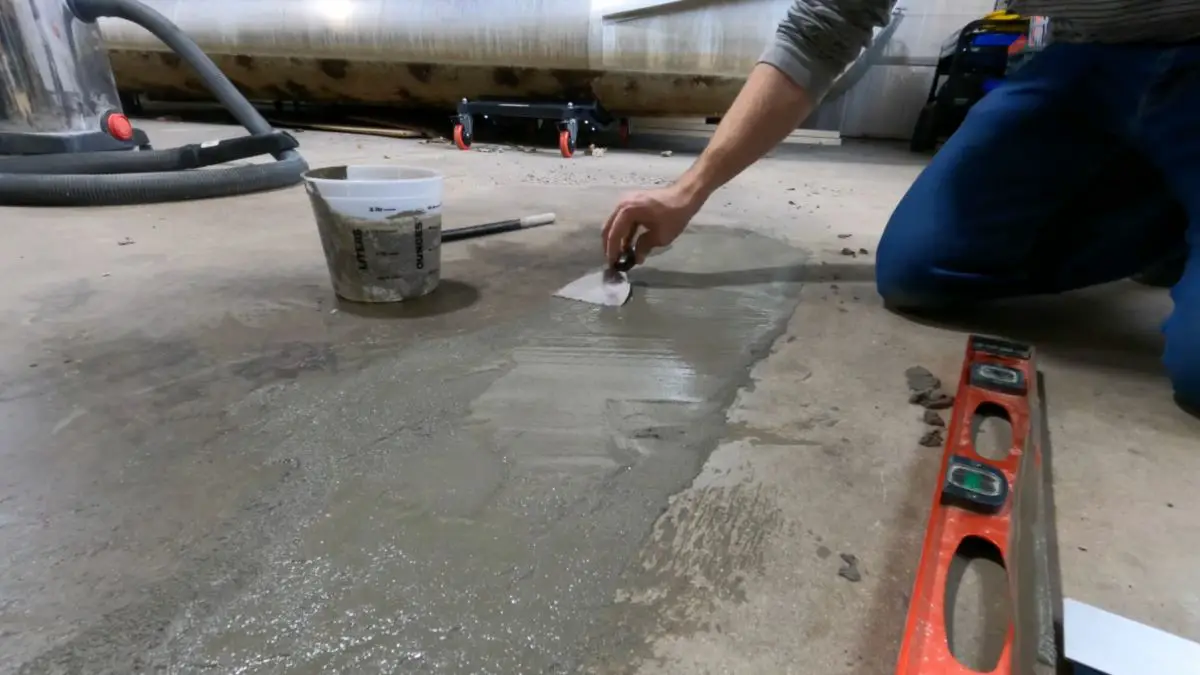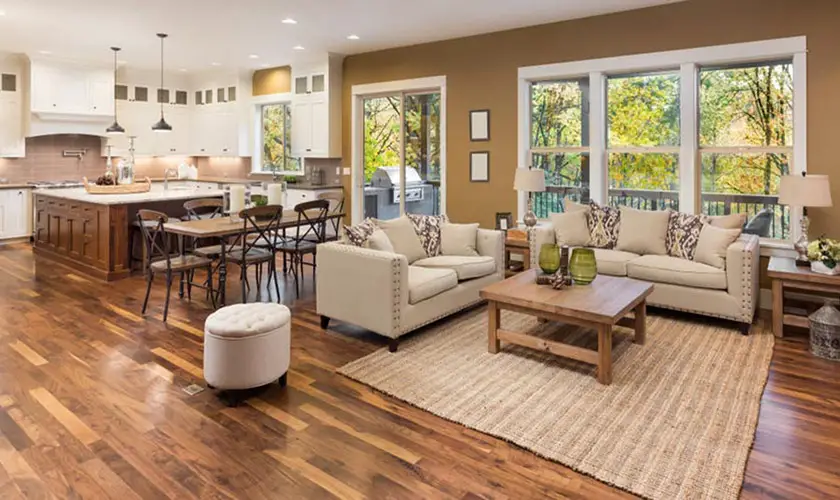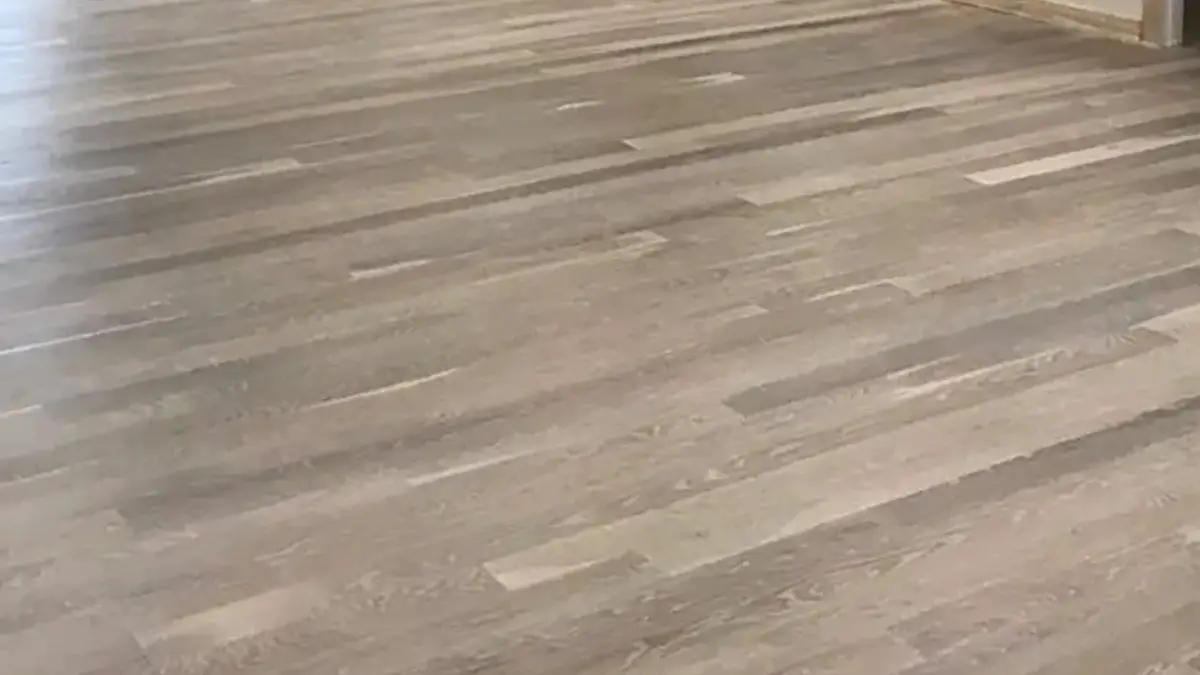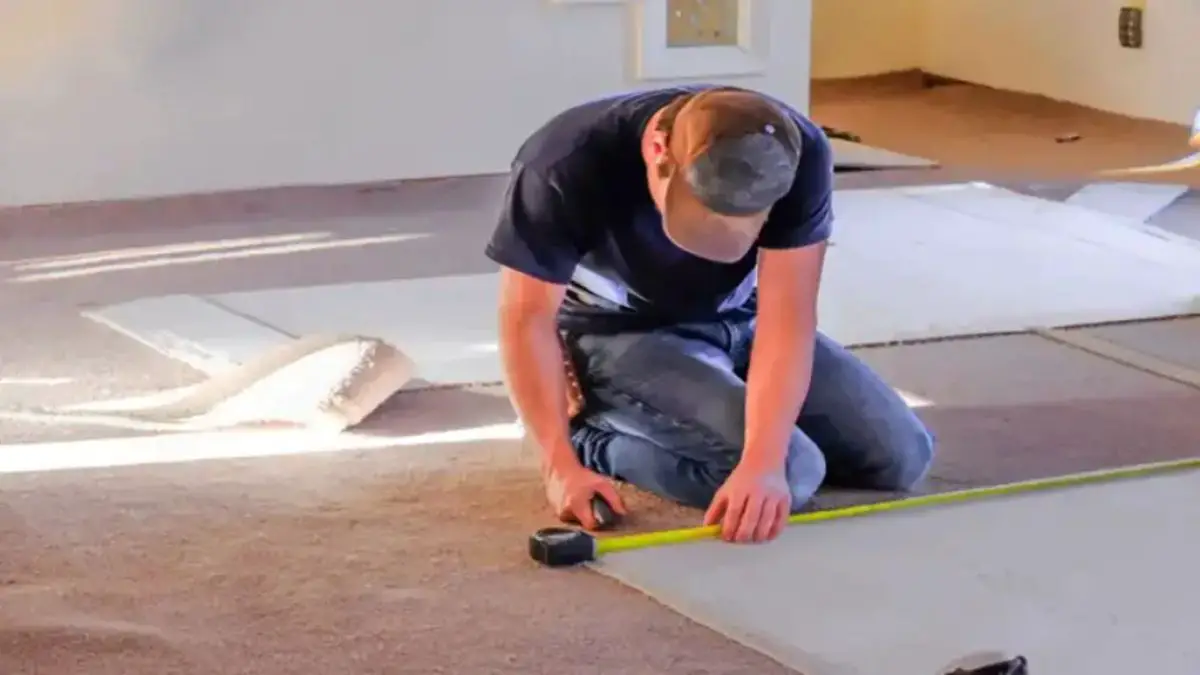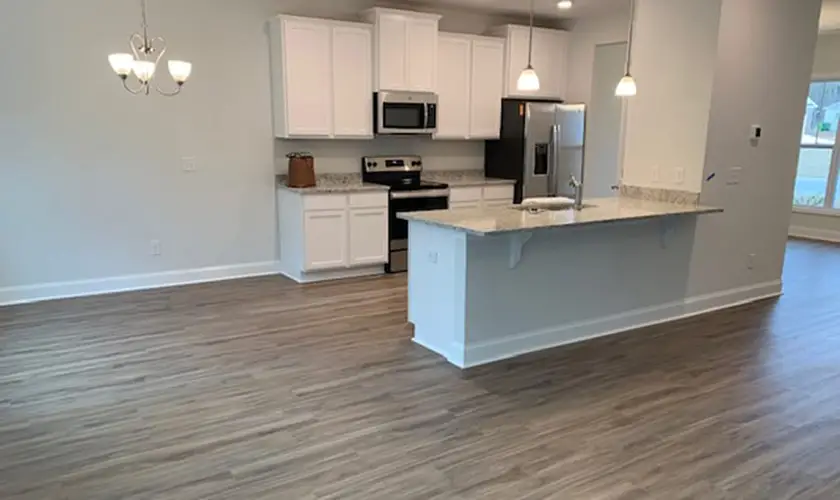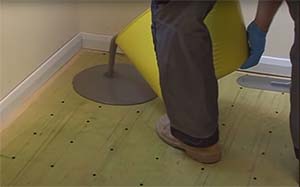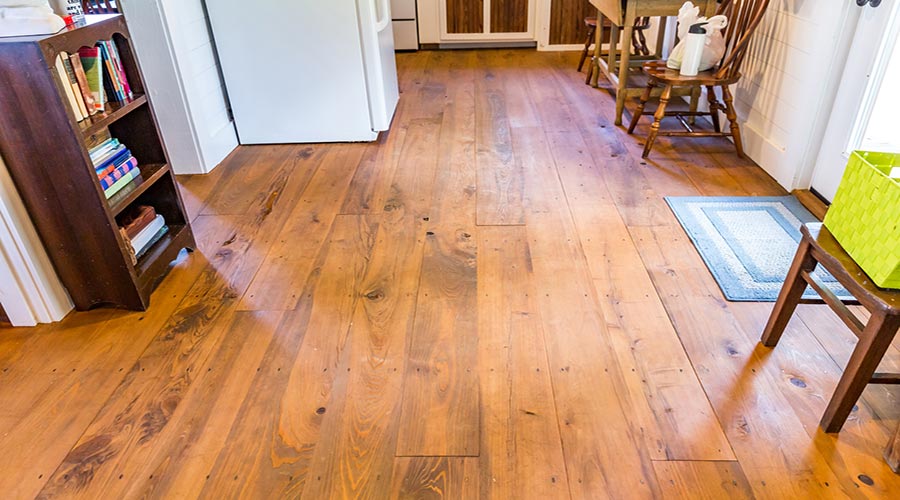
Hardwood floors may be considered one of the most aesthetic floors you can have in your home, but they do come with their downside–depending on where you live. Hardwood floors also have their sweet spot for preferred humidity.
People neither prefer too much nor too little humidity and so do hardwood floors. Too much moisture in the air can be detrimental for wood, but the opposite is true as well.
Hardwood floors absorb moisture from the air, and extremely high or low humidity levels can be detrimental. Low humidity can cause hardwood floors to dry out, shrink, crack, or damage the wood’s finish. It is vital to keep the humidity level between 35-55% for the well-being of your hardwood floors.
Low humidity levels are not good for your hardwood floors, but that does not mean that low humidity is the only thing that can damage them.
Are high humidity levels bad for your hardwood floors? What humidity levels should you avoid at all costs if you have hardwood floors? How do you ensure that you maintain the perfect humidity levels for your hardwood floors? In the following sections, well explore all of these questions and more.
Is Low Humidity Bad for Hardwood Floors?
It is important to remember that hardwood floors are hygroscopic, which means that they can absorb moisture. Depending on the humidity levels, the wood can either expand or contract due to the air’s increased or decreased moisture levels.
During winter, people often shut their doors and windows and turn up the heaters, which dries out the moisture in the air. This is not good for your hardwood floors since hardwood floors do not react well to low humidity conditions.
When the humidity is low in your home, it can have the following negative effects on your hardwood floors:
- It Can Leave Gaps In Your Hardwood Flooring: If your hardwood was installed during a very humid climate, it was in an expanded state. Accordingly, when the indoor humidity drops and the moisture in the air decreases, your hardwood shrinks again, which can leave gaps in the pattern of your hardwood floor.
- It Can Cause Your Hardwood To Dry Out: If hardwood is dried out, it becomes weak, which can lead to a couple of consequences such as cracking or splintering.
- It Can Cause Your Hardwood to “Check”: This means that your hardwood floors dry out enough where the wood splits down the grain and causes nearly irriversable damage.
- It Can Damage Your Hardwood Floor’s Finish: This can make your hardwood floors look aged and ugly, and can impact the ease and effectiveness of your hardwood floor maintenence regimen.
How to Maintain the Perfect Humidity Levels For Hardwood Floors
Before we look at the best ways to attempt to regulate the humidity of the environment that your hardwood floors are subjected to, we will discuss what the different levels of humidity are classified into and their effects on hardwood floors. After, we’ll discuss how you can alter the humidity to suit your hardwood floors.
Different Humidity Levels and Their Effect On Hardwood Floors
The different levels of humidity and their effects can be classified as follows:
| Humidity Levels | Effect on Hardwood Floors |
|---|---|
| 0-25% | If your hardwood floors are exposed to these humidity levels, it is highly likely to affect your hardwood floors negatively. If your hardwood floors are exposed to these conditions for long periods, it will lead to cracking, splintering, and large gaps forming. |
| 30-35% | If your hardwood floors are exposed to these levels of humidity, there is a chance of your hardwood floor contracting and expanding a bit. That said, the movement of your floors will be minimal. |
| 35-50% | These are the ideal humidity levels you want to have your hardwood floors exposed to. If your hardwood floors are exposed to these levels of humidity, your hardwood floors should remain stable with minimal expansion or contraction. |
| 50-55% | The same effects apply that do for humidity levels between 30-35%. |
| 60-100% | If your hardwood floors are exposed to these humidity levels, there is a high risk of the humidity negatively affecting your hardwood floors. Under these humidity conditions, your hardwood floors will expand, which can lead to side effects such as cracking, “checking,” buckling, and cupping. |
How To Stabilize the Humidity Levels in Your Home
We know that the best humidity levels you want to have your hardwood floors in are between 35-50%. Now, our task is to ensure that these humidity levels are maintained to keep our hardwood floors in the best condition as long as possible.
Some people consider 35-50% to be too wide of a range, so you can further specify that the safe spot for hardwood floors to be between 38-42% humidity. Ultimately, it will vary from home to home and hardwood floor to hardwood floor, but the range of 38-42% is the best range to experiment with your hardwood floors.
The best way to sustain the ideal humidity levels in your home is a humidifier or dehumidifier. Humidifiers are devices that add moisture to the air, while dehumidifiers do the opposite and remove moisture.
Below, we’ll take an in-depth look at different types of humidifiers and dehumidifiers with their respective pros and cons:
| Humidifier or Dehumidifier Type | Description | Benefits | Drawbacks |
|---|---|---|---|
| Warm Mist Humidifier | This device heats water until it turns into a vapor, which is then released into the air. | Very little noise and heats the water, so there’s little chance of bacteria growth. | If not careful, you can accidentally burn yourself. Not as energy-efficient as alternative options. |
| Cool Mist Humidifier | This device uses either ultrasonic technology or evaporative technology to introduce moisture to the air. | They do not heat up and are safe to use (especially around children). | It can create puddles of water and uses wicks that you must often replace. |
| Heat Pump Dehumidifier | This device uses heat exchange coils to condense moisture from the air and collect it. | Very effective at regulating moisture levels in your home. | The device has hot components, which can be dangerous. You must also empty the water reservoir every once in a while. |
| Chemical Absorbent Dehumidifier | These dehumidifiers remove moisture from the air using hydrophilic gel. | These are extremely simple to use and often fully disposable or use disposable cartridges. | Not as efficient as other options one of the only ones that regularly creates waste (the cartridges). |
Conclusion
In summary, you do not want to be on either side of the humidity spectrum. If your humidity levels are too low, your hardwood floors will shrink, and if humidity levels are too high, your hardwood floors will expand. Both ends of the spectrum have severe consequences and can ruin your hardwood floors.
The idea is to get the perfect balance of humidity in your home and maintain a constant humidity level. Use the guidelines given above, and you will never be left with hardwood floors that become a larger headache than what they are supposed to.


